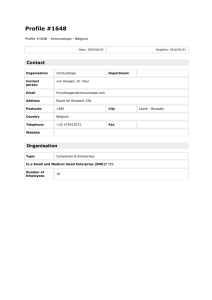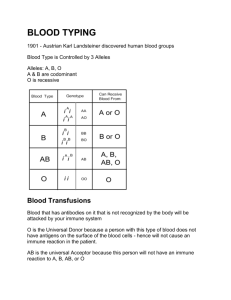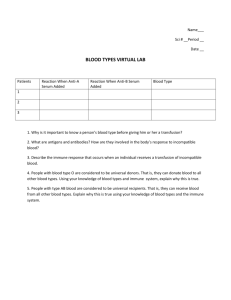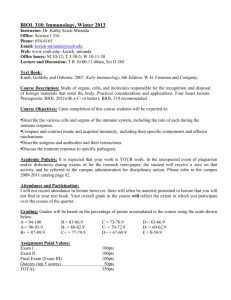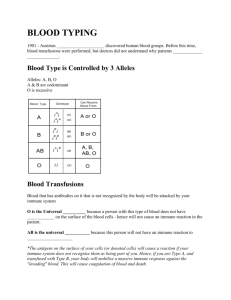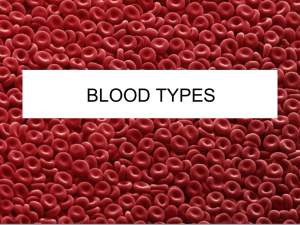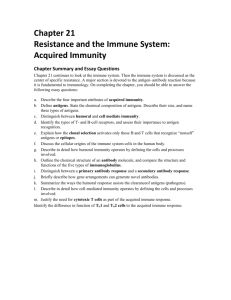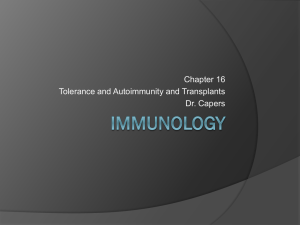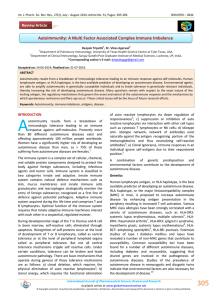Topic 3 Autoimmunity
advertisement
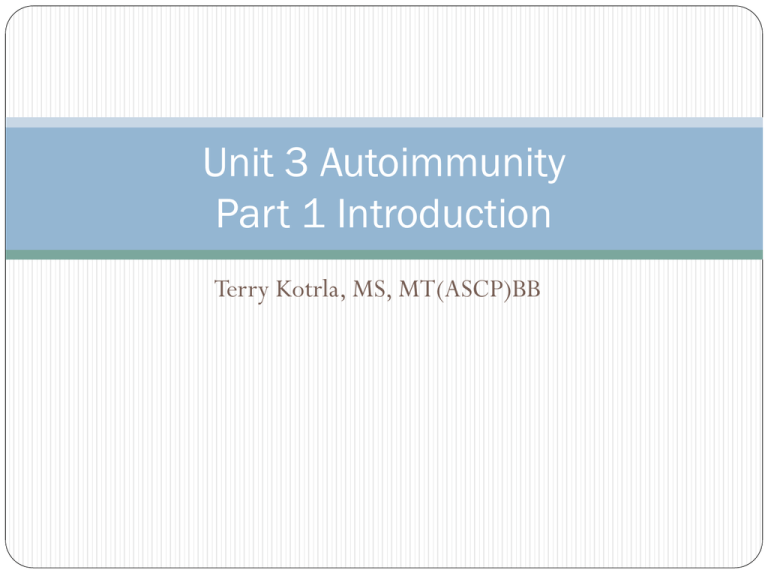
Unit 3 Autoimmunity Part 1 Introduction Terry Kotrla, MS, MT(ASCP)BB Tolerance Do not mount immune response to “self ” antigens. Term “self-tolerance”. Immune system constantly challenged to discriminate between self and non-self and make the right choice. Under normal circumstances immune system will not destroy self antigens. Autoimmunity Autoimmunity can be defined as breakdown of mechanisms responsible for self tolerance and induction of an immune response against components of the self. Autoimmune disease occurs when the immune system attacks self-molecules as a result of a breakdown of immunologic tolerance to autoreactive immune cells. Autoimmunity Autoimmune Response Antibody directed against “self ”, termed auto- antibody Considered abnormal but usually does not result in disease. May occur in healthy individuals. Autoimmune Disease Disorder in which tissue injury is caused by an immunologic reaction of the host to its own tissues. Precise mechanisms unknown. Comprising multiple disorders and symptoms ranging from organ-specific to systemic. Proposed Mechanisms Many mechanisms postulated. The following will be discussed: Forbidden clone Altered antigen Sequestered Antigen Immunologic deficiency theory Genetic influence Forbidden clone Clone of changed or altered lymphocytes arise through mutation. Lack foreign surface antigens, not destroyed. Because of alteration may recognize host as foreign. May be cause of increased incidence of autoimmune disease in elderly. Altered Antigen Surface antigens on host altered by chemical, biological or physical means. This new antigenic determinant may be recognized as foreign by the host. Sequestered Antigen Some antigens in the body are hidden from cells of the immune system. If there is damage to these organs causing exposure of these sequestered antigens an immune reaction to these antigens may occur. Immunologic Deficiency Theory Relates the increased frequency of auto- antibodies and increased immune system deficiency to age. Mutation or loss of immune regulatory powers results in the condition in which self antigens behave as foreign antigens. Genetic Influence It is well recognized that certain immune disorders predominate in females and in families. Determined by family studies. Genetic links have occurred between diseases and HLA antigens Contributing Factors Defects in the immune system. Influence of hormones Environmental conditions Classification of Autoimmune Diseases Systemic- the auto-immunity is directed against an antigen that is present at many different sites and can include involvement of several organs Organ specific - Organ specific means the autoimmunity is directed against a component of one particular type of organ. Both – can get overlap Excellent chart on classification: http://tinyurl.com/3a7oas3 Diagnosis Symptoms Detection of antibodies reactive against antigen of tissues and cells involved. Tests may involve Immunofluorescence ELISA RIA Agglutination The End

